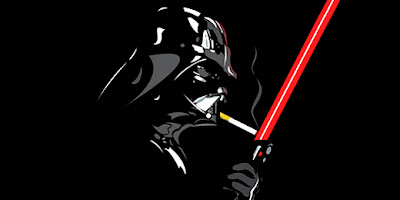Digital Book World sent out an email today highlighting an article about the world's most expensive Print On Demand machine made for bookstores. The actual article is pretty cool, but its the whole tone of it, and this stupid line in DBW's email that set me off,
Espresso Book Machines' print-on-demand technology impressed many in the publishing world when they debuted years ago, before the ebook boom had hit its stride, but they mostly failed to take off. With ebook growth flat, print holding steady and interest strong among publishers in shaking up the distribution landscape, some wonder if now's the time to dust the technology off.
I read every email from DBW, keeping my thumb on the industry, and these guys never fail to make me cackle at the absurd assertion that ebook growth is flat.
Ebook growth is soaring, if you count all the non-ISBN ebook titles. If you only count ISBN ebook titles, then its probably flat, maybe even starting to decline...
What does that say about the ebook industry? ISBN titles are predominantly coming out of the traditional publishing world, apart from some of the ebook titles pubbed on non-Amazon retailers that still use ISBNs (like everything spit out via Smashwords).
Its the non-ISBN titles that represent the largest growth category in publishing today, because that is where the Indie explosion is happening. If a book has no ISBN, there's about a 99.99999% chance its an Indie title. Traditional publishers ALWAYS use ISBNs.
I'm unhappy with Amazon for several reasons right now, mostly involving Kindle Unlimited and the damage that program is doing to Indie publishing, but when it comes to ebook sales, I know the truth. I'm in the trenches with the Indie community. Hell, I have tools like Kindlespy http://www.kdspy.com/ that lets me estimate the kindle sales across categories and keyword phrases. Its not a secret. The data is there for anyone who wants to look for it.
Hugh Howey and dataguy went through the trouble of laying it out, probably using similar software as Kindlespy. They combed the bestseller lists and identified Indie vs. Traditional titles and their sales levels in ebook, and the approximate earnings paid to the authors. http://authorearnings.com/ The data is out there to be had.
I can guarantee you that sales are not flat. Borrows might be overtaking a percentage of sales in the KU ecosystem, but the level of ebook buying/borrowing activity is definitely not flat.
The only flat statistics come from the ISBN world.
What should be a wakeup call is the alarming fact that the publishing industry is either unaware of the massive ebook sales growth that's passing them by, or they're ignoring it, in favor of unreliable industry stats.
I happen to know numerous Indie authors who are making double-digit thousands a month on titles that have no ISBN tracking. Do you think their ebook sales growth is flat? Not even close. Every time they put out a new book (which is almost monthly--working in short novellas or serial fiction--or just plain writing their asses off), their sales spike, over and over, and continue to grow across their entire catalog.
In fact, I suspect that there would be more Indies hitting NYT and USA Today list status if they understood that non-ISBN titles are submitted to NYT and USA Today separately from the same title of book bearing an ISBN!! In other words, you only get aggregate sales counts at the bestseller lists by having the ISBN MATCH on all retailers.
And, as you may not have been aware, some retailers actually reserve spots on their bestseller lists for their Big 5 trad pub corporate clients. So, even if you're selling gangbusters, you might find that all of a sudden, your rankings drop and you're no longer sitting in the top 100 at a given retailer, because they needed your spot on the list, your book was taking up a reserved parking space.
 |
| Big 5 ebooks get the handicap spot on the bestseller list |
So, it begs the question ... how many Indies are actually selling at list status or very, very close--without the publishing industry even being aware of it?
My message today is this: Pub industry speakers and proselytizers, please pull your heads out of you-know-where and start looking at the data that is right in front of your eyes. Start talking some real numbers, PLEASE. Stop spoon-feeding the BS line that ebook growth is flat.
















